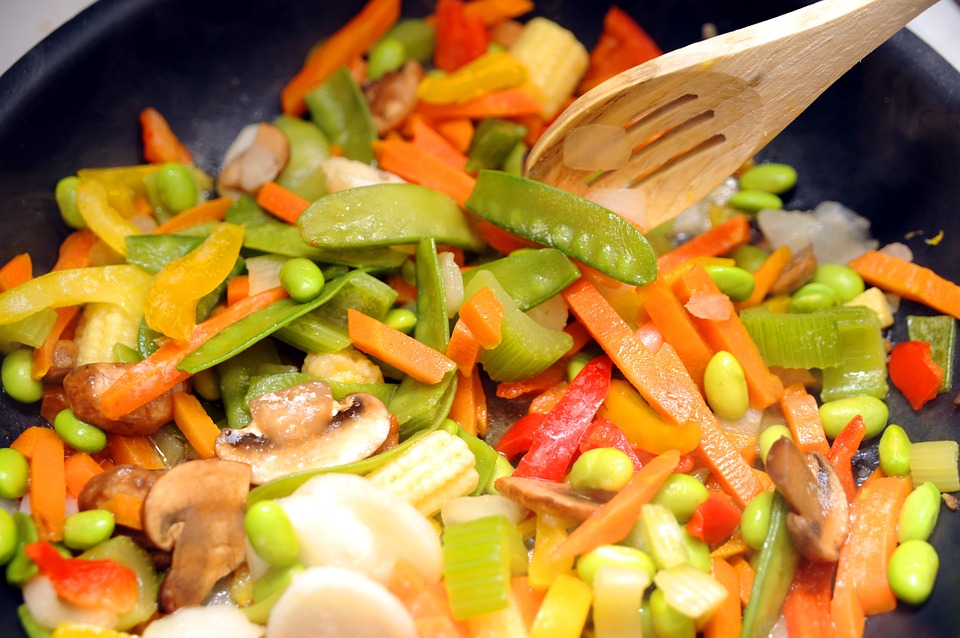Is a Vegetarian Diet a Good Idea for Losing Weight?
Is a Vegetarian Diet a Good Idea for Losing Weight?
March 04, 2016 at 4:22 PM
If you think like a lot of people, “vegetarian food” and “health food” are almost completely synonymous. Thoughts of health food usually evoke the image of crunchy granola, sprouts, salads, and other stereotypically vegetarian fare.

Considering that a healthy diet along with regular exercise is the most important part of maintaining a healthy weight, does that mean a vegetarian or vegan diet is better for weight loss than an omnivorous one?
It does and it doesn’t. This is far from the first time the question has been asked, but it can still be hard to give a definitive answer one way or the other. To explain what we mean, let’s take a close look at the arguments for and against the idea that vegetarians are better at staying trim than meat-eaters.
For: Vegetarian Diets Are Better for Weight Loss
Regardless of cheese pizza and low-carb diets, the simple fact of the matter is that study after study shows that even controlling for calorie intake, vegetarians tend to be leaner and live longer than their meat-eating peers. Vegetarians and vegans also tend to have lower rates of heart disease and type-2 diabetes, afflictions usually associated with obesity.
In fact, a 2015 meta-analysis of 1,513 studies by Harvard University's T. H. Chan School of Public Health found that those on vegetarian diets lost 4.4 pounds more than a control group, while those on a vegan diet lost 5.5 pounds more.
And why not? Vegetarian diets encourage consumption of healthful, low-calorie foods like fresh vegetables, fruits, nuts, and lean proteins like tofu and beans.
Against: Vegetarian Diets Are Not Better for Weight Loss
You don’t need to be a nutrition specialist to realize that not all vegetarian food is necessarily good for slimming down. Extra-cheese pizza, a black bean burrito with extra sour cream, a pile of fast food French fries, chocolate breakfast cereal: none of these are particularly smart choices for anyone health-conscious, but all are completely within the bounds of a strict vegetarian (if not vegan) diet. Not that anyone would claim cheese pizza is a health food as long as you hold the pepperoni, but the point stands that vegetarian choices aren’t always smart ones.

Another thing to consider is that many people find low-carbohydrate diets are more effective for long-term weight loss than more traditional low fat diets – and there’s plenty of science to back them up. Numerous studies in the New England Journal of Medicine as well as other journals have found evidence to support the idea that low-carb diets produce better weight loss outcomes than those low in fat. For instance a 2013 Swedish review of 16,000 studies by the Council on Health and Technology found that low-carb diets produce greater short-term results with no difference in long-term outcomes than other diets, while others have found significant correlations between low-carb diets and prevention of obesity-related diseases like type-2 diabetes and heart disease.
While it’s certainly not impossible to maintain a low-carbohydrate vegetarian or vegan diet, it does present certain challenges. Many foods that vegetarians rely on for protein, like whole grains and beans, are also relatively high in carbohydrates compared to lean meats or fish.
Conclusion
At the end of the day, the best diet for you is one that’s balanced, one that you enjoy, and one that you can stay on in the long run. If yours includes chicken breast and filet mignon on top of a diet rich in fruits and vegetables, you’re probably going to be okay. It’s important to remember that for all the proven correlation between vegetarian diets and low BMI there’s no guarantee of causation – it may be that those already more inclined to staying slim choose a vegetarian diet than vice-versa.
But if you personally feel better without meat in your life, whether for health, ethical reasons, or both, go ahead and bring on the tempeh.
For more information and help with losing weight in Connecticut and beyond, contact Medical Weight Loss Solutions in Wallingford.


